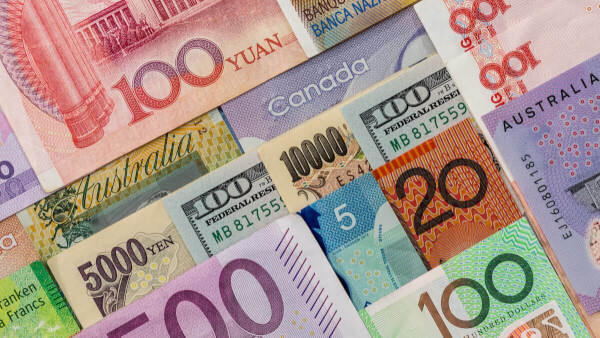How To Use WorldRemit To Receive Money In South Africa
Your guide on how to receive money from WorldRemit in South Africa, including collecting money as a cash pick up and documents you need to make an account.

Capitec Bank is a major financial institution and is a popular choice for exchange between the nations due to its dependable financial services. The bank is now able to send money from South Africa to other nations making it more attractive to expats. But is it truly the best solution in the market? Do they offer the best rates? We answer all this and more in our comprehensive guide and even break down things you need to know about exchange rates.
We also introduce you to Wise, an alternative for international money transfers that helps you receive international payments in South Africa at the mid-market exchange rate - similar to the exchange rate you see on Google -
and no hidden fees.
In its simplest form, an exchange rate is the amount that one currency is worth compared to another⁸. It is constantly changing, and the values of domestic and foreign currency can both affect it.
Exchange rates form the basis of foreign exchange and it is important that you understand how exchange rates work and the hidden costs involved to ensure you get the best value for your money when making a foreign exchange transaction.
Often referred to as the "real" or "actual" exchange rate, the mid-market rate is the midpoint between the buying and selling rates of a currency on the global market. It’s the fairest rate you can get, which is similar to the rate visible on Google. Wise also provides its customers with transfers at the mid-market rate with no hidden costs. You can see what your transfer to South Africa would cost with Wise’s currency converter.
| For example, if 1 USD equals 18 ZAR at the mid-market rate, this reflects the actual market value without any added fees. However, most banks and exchange providers do not use this rate for customer transactions⁹. Capitec gives you the final exchange rate only once you confirm the payment¹⁰. |
|---|
Money exchanged through banks, brokers, or other providers often includes a markup⁹. Let’s understand this better with an example, we’ll consider the Rand and the Dollar in this scenario to help you better understand a markup.
Example:
For example, if you’re exchanging $1,000, you’ll receive 17,500 ZAR instead of 18,000 ZAR. That 500 ZAR difference is essentially a hidden fee. Another thing to note is that the amount you send may not always be the amount the beneficiary receives. This is because the recipient's bank may charge an additional fee to process the payment¹⁰.
In addition to marked-up exchange rates, many providers may charge explicit exchange fees. These fees vary depending on the method of exchange and the amount being converted.
Types of Fees to Watch For:
High fees and markups make you lose a lot of money when you’re exchanging foreign currency. This may hit hard even if you needed to receive $100 but received just $90 post all the fees but for larger transactions you could end up losing thousands of dollars in just fees. Staying informed and researching methods of transfer that will cost you the least can help you save a lot of money and stress.
You can try the following to make sure you transfer money at the best rate:
Example: Exchange Fees in Practice
Let’s compare two scenarios to illustrate how fees and exchange rate markups affect the cost. Note that the exchange rates used were those at the time the article was written. You can find the current exchange rate here.
Scenario 1: Using a provider that adds a markup to the exchange rate
Scenario 2: Using Wise
| By using Wise, you save 520 ZAR on this example transaction. Please find out the current exchange rate and charges by selecting your desired currency you want to convert to ZAR in our currency converter below. |
|---|
If you’re an expat living in South Africa, Wise can help you save money¹ when making international money transfers to South Africa.
Although the majority of banks may allow their account holders to make an international transfer, it is possible that a markup is added to the mid-market exchange rate. It is recommended to check the exchange rate offered by your bank against the mid-market rate, which is similar to the exchange rate shown on Google. Say no to hidden fees!
The mid-market exchange rate is the rate that banks use to transfer money between them and is considered the fair rate in the market. Find out what you would pay for an international money transfer with Wise:
Wise customers don’t have to pay an additional markup fee but only a small transparent fee to make an international transaction¹. That’s because Wise uses the mid-market rate for overseas payments!Capitec Bank enables international money transfers to and from South Africa in approximately 50 countries. You can access this service through their app using the Transact feature. Additionally, if you need to send money abroad, you can request Capitec Forex to set up an FX Trade Account for international payments. Their website lists the response time as within 48 hours.
The fees for international transfers can be different depending on the nature of different transactions. However, Capitec offers fixed fees for both sending and receiving payments, which we will outline below.
| Transactions via Capitec | Fee |
|---|---|
| Incoming international payment in RAND or foreign currency⁵ | R50.00 |
| Outgoing international payment in RAND or foreign currency⁵ | R175.00 |
Capitec recently launched the Transact feature on their app to simplify the process of sending and receiving international payments from South Africa. This helps make transactions easier for South African expats as well as their family back home that need to send money to them.
So how can you make and receive international payments to your Capitec account? We discuss the steps for doing this in the following section.
Sending international payments via app⁵:
Keep in mind that the app currently only supports sending payments to countries using USD, GBP and Euro. If you need to send money to another currency apart from those listed above, you can contact their Forex team on 021 809 4501 for help with the transfer.
Receiving International Payments via app⁶:
Receiving International Transfers via SWIFT
The bank allows its users to receive payments in their account using SWIFT⁷. Your payment will be credited to your Capitec account automatically if it meets all the requirements set out by the SARB. Keep in mind that Capitec will charge you a fee to receive a foreign transfer in your account. The person/business sending you money will also have to pay fees; these will vary based on the bank they use to initiate the transfer. The fee charged by Capitec cannot be quoted before the payment is received due to the number of other banks that might be involved to make the payment to Capitec Bank². The same is the case for when you send money internationally using Capitec.
For complete transparency and peace of mind you can always opt for Wise – an international transfer service provider that we discuss in more about in the article..
You need to share the following details with the sender to receive money in your Capitec account⁷. Make sure to send all these to avoid any delays in payment clearance.
It is also recommended that they add a reason for sending you the money – examples of these include money sent as a gift, for payment of fees, etc.
It is important to note that if the money being received is more than R50,000, you will need to declare the payment⁷. This can be done over the phone with Capitec Bank. You must keep details of the sender, such as their full name, their account, and the amount they are transferring to you at hand to complete the verification.
To send money internationally Capitec lists that you have the following for a smooth exchange experience⁷:
USD, GBP, and the Euro are the currencies Capitec can make international payments in currently⁶. South Africans living in the USA, United Kingdom, and in the European Union can easily send money to South Africa and even receive money from back home directly through Capitec.
There are other currencies currently in the pipeline for broadening the regions South Africans can send money to using Capitec.
All in all, Capitec is a reliable and swift method of transferring money internationally to and from South Africa. It allows you to make payments in major global currencies by using their app or getting in touch with their team. The downside to using Capitec are the associated fees and exchange rates.

Wise stands out as a transparent alternative. With its use of mid-market exchange rates, no hidden costs, and minimal transfer fees¹, Wise ensures that your money transfers to South Africa are both smoother and fast.
Sources:
*Please see terms of use and product availability for your region or visit Wise fees and pricing for the most up to date pricing and fee information.
This publication is provided for general information purposes and does not constitute legal, tax or other professional advice from Wise Payments Limited or its subsidiaries and its affiliates, and it is not intended as a substitute for obtaining advice from a financial advisor or any other professional.
We make no representations, warranties or guarantees, whether expressed or implied, that the content in the publication is accurate, complete or up to date.

Your guide on how to receive money from WorldRemit in South Africa, including collecting money as a cash pick up and documents you need to make an account.

Everything you need to know about how to receive money from Western Union in South Africa, including how and where to pick up cash, and the documents you need.

Discover how to send money abroad from South Africa using Payoneer, including the transfer fees, exchange rate and what you need to make a payment.

Everything you need to know about international transfers with Mama Money, including transfer fees, which countries you can send to and transfer limits.

The easy guide on how to receive money from PayPal in South Africa, including international PayPal fees and how to link your South African bank account.

Need to transfer money from Capitec to FNB but unsure on how to? Our guide has you covered!